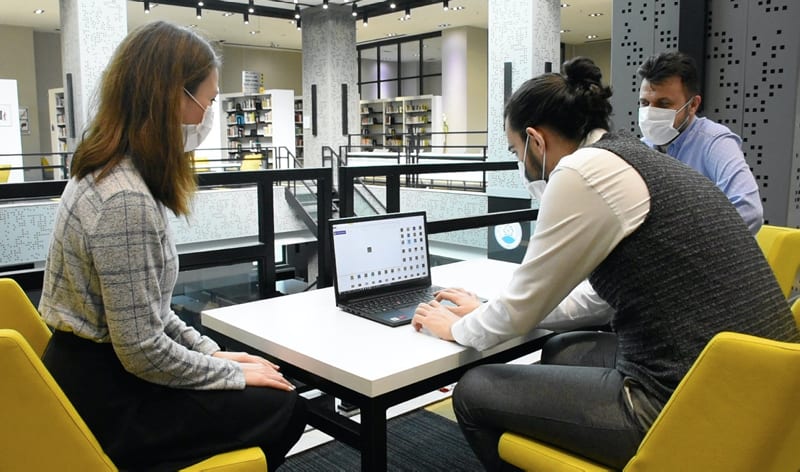Erasmus, the European Union’s prestigious student exchange program, is flourishing in Turkey, a hopeful for accession to the bloc. In the past 17 years, more than 36,000 projects, which were part of the program, have been endorsed and some 700,000 students have benefited from the exchange.
The program provides opportunities for students, as well as teachers, to exchange knowledge and experience. It also provides vocational training and internship options. The Turkish National Agency, a subsidiary of the Foreign Ministry, oversees the Erasmus programs in the country. Data from the agency shows that a budget of about 1.4 billion euros (TL 12.57 billion) was allocated for Erasmus projects, which are a gateway to education in European countries and a partnership opportunity for educational institutions in Turkey and abroad.
Ilker Astarcı, who heads the agency, told Anadolu Agency (AA) on Monday that Erasmus has an added advantage of ending the prejudice toward Turkish citizens in Europe. “It builds an atmosphere of dialogue between Turkey and the European Union,” he said. Turkey pursues good relations with most European Union countries, but a number of thorny issues have hindered the lengthy application process as the country seeks to be included in the bloc.
Since 2004, Turkey has participated in European Community programs that seek to promote cooperation between the EU and candidate countries. Erasmus, which was boosted with the Erasmus+ program introduced in 2014, is among them. It combines EU schemes for education, training, youth and sport, with an emphasis on student exchange.
Erasmus also supported more than 46,000 students and staff from EU countries to study or teach in Turkey, according to figures from the Delegation of the European Union to Turkey. Germany, Poland, the Netherlands and France send the most students to Turkey for education, while the top destination for Turkish students seeking education abroad was Germany, followed by Poland, Italy and Spain.
Astarcı said the program supplied funds to 60,000 participants each year, including 20,000 university students and will continue with new schemes over the next six years. Erasmus will earmark a budget of about 26 billion euros for this new period and aims to focus on digitalization, the environment and democratic participation in its new schemes with more inclusion of people from disadvantaged communities. Among the new schemes is “Discover Europe” where 18-year-olds will be eligible to travel across the continent with grants, as well as “Youth Participation” that will focus on raising awareness of basic rights and democratic life. Doctorate students will be able to apply for short-term Erasmus programs, while sports coaches and athletes will be able to receive funding for their professional development through training in Europe. Institutions will also be able to invite experts, trainers and business people from abroad to improve education and training. In the new period, high school students will also be eligible for Erasmus programs, for education or internships at schools across Europe.

